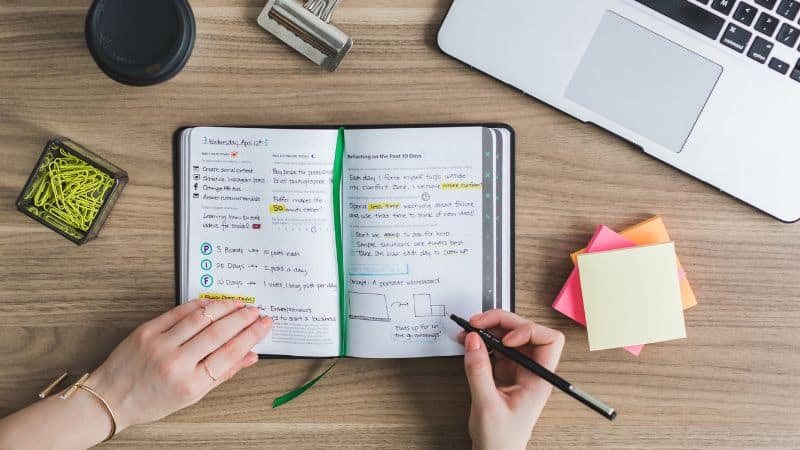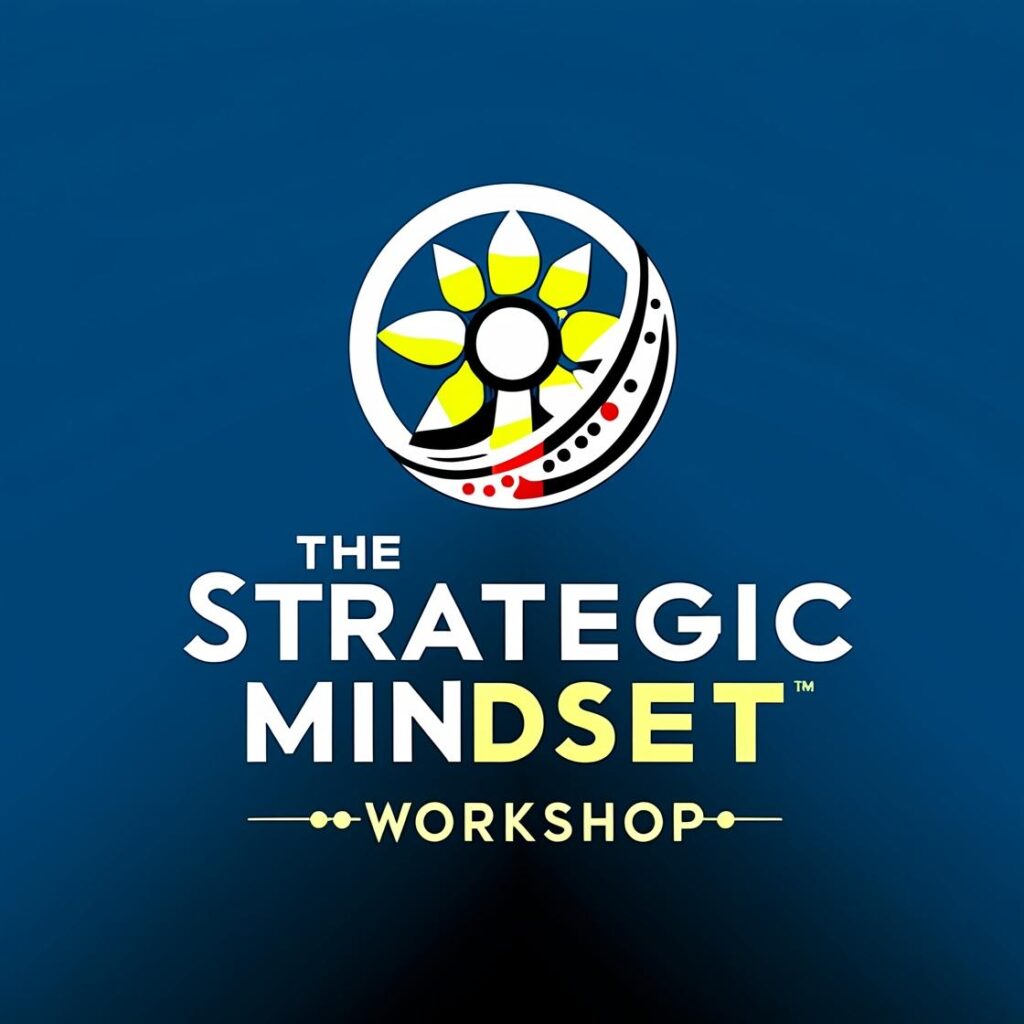You can be motivated to study, even when you feel stuck, or there is no motivation at first when you have ambition. Your motivation to learn is a superpower. Motivation is a significant part of your success. And anyone who can sustain motivation can create momentum.
Motivation is a powerful tool for studying. It can help you stay on track and achieve your goals, but motivation alone is not enough. You must pair it with action to achieve your goals.

This article is part of a series dedicated to students. You will discover
- Ways to get motivated to study harder and become the best you,
- Use different sources of motivation,
- Understand why students fail and how to fix them, and
- Learn effective and proven ways to get started when you have no motivation, and
- How to keep your momentum!
“You cannot swim for new horizons until you have the courage to lose sight of the shore.”
William Faulkner
Strategies to Keep Your Motivation to Study
Do you need the motivation to study harder? The answer depends on four things: purpose, mindset, strategies, and execution. You can get many techniques or hacks on how to study harder, but if you don’t know your purpose, each technique won’t make sense to you.
Studying harder does not mean that you have to work twice as hard. It means that you have to focus on what you are doing. In my experience, one who is motivated to study harder also has more time for play.
So, I will share with you what works for me first. Then, students can use these recommendations. Professionals can use these too.
Clarify your purpose.
Let your purpose drive you. Because without ambition, you will be like a dead fish floating with the river’s flow. You won’t reach the ocean. Even if you do, it does not matter. You are dead.
Studying without a purpose is like driving a car without knowing your destination. Worst than that, all road signs disappear. For a driver without a purpose, all road signs don’t matter. You can continue driving, but you will soon get tired.
Great leadership isn’t an event—it’s a habit. Get actionable leadership habits every Monday and Thursday.
Who do you want to be?
The goal of studying isn’t to acquire new knowledge and learn new skills. That’s what we see from the outside. Instead, our studies must help us become who we want to be.
You can brainstorm your dream jobs. You can also consider jobs which will create for yourself. A job that makes you the first if you cannot find any today.
Don’t be afraid to dream.
If that person whom you want to become is a stranger to you, dream about it. That person can be very much unlike you regarding knowledge, skills, attitude, reputation, achievements, and others. That’s okay.
The purpose of education is not to acquire but to evolve.
Who will benefit?
When I was in grade school, everything was like child’s play. I did not find any subject difficult. If I had any motivation to study, it was to get good grades. I did not want to be left behind.
I was born to a low-income family. So I didn’t want anyone to look down on me. So I had to become good, at least in my section. I remember being invited to join the first section, but I refused. I had no money.
In high school, studying was a struggle because the family was in trouble. So I paid more attention to earning income for the family. We must live. But slowly, it made me realize that education is a way out of poverty.
That means that if I study harder, I might get the chance to go to college and have better opportunities for a good life.
Slowly, the motivation to study harder became more intrinsic. I want to change our lives. I want to change our destiny. With a college education, I can get a good job.
A good job means that I will be able to send my siblings to school. We won’t be living in the slums anymore.
In college, I started to think of other people who, like us, had small life chances. We were called dukha, the poorest of the poor.
The term is derogatory, but for those living in the slums, dukha is who they are.
Who will suffer?
We don’t live in this world for ourselves alone. I have heard songs that preach this truism. But this is very personal to me.
We do not need to be in the same situation for you to understand what I have just said.
Many people will benefit when you study harder and become the person you want to become. Do not deny them the opportunity to be with you.
When I was in high school, I knew I would be able to help many people with a good college education.
Then, consider the people who will suffer because you allow lack of motivation, laziness, and procrastination to rule your life — only because you are not very clear about your purpose.
When you don’t become better, you get worse. You are bound to evolve. You will find the motivation to study harder to become a better you.
A better you will also help uplift the lives of others. Trust me.
I get myself motivated to study because I was not studying for my own sake alone.
When you find your WHY, you don’t hit snooze no more! You find a way to make it happen!
Eric Thomas

Embrace a Growth Mindset
You will seldom find this advice, but I promise you that this is very important. Often motivation to study is shaped by how to see learning and intelligence.
I invite you to examine your intelligence, learning, and failure mindset.
Do you believe that intelligence is permanent – either you have it or you don’t?
Do you think you are not good enough at mathematics, languages, arts, singing, dancing, and anything that requires talents? In short, do you believe that God has not gifted you with any talent?
Do you believe that you cannot go against your fate?
Do you believe you fail because you have reached your level of incompetence? [mfn] The Peter Principle suggests this idea too. [/mfn]
If your answer is affirmative, then your lack of motivation is based on a fixed mindset. Don’t worry; you can correct this.
Fixed Mindset & Lack of Motivation
A fixed mindset is a belief that our intelligence is permanent. A few people are born intelligent, and most people aren’t. That means a few people won the Intelligent DNA lottery when they were born.
People with a fixed mindset want to look smart. They don’t want to make mistakes, or people will think they are dull. This thinking is reinforced in schools. Teachers often praised students for their natural intelligence than their hard work.
People with a fixed mindset avoid challenges because they don’t want to fail. Failure will leave no doubt that they are not good.
Students with a fixed mindset think that failing in exams proves they don’t have the intelligence needed to pass. And if they passed the test, they often feel that passing a test was just a lucky break.
They get frustrated when they fail. There is no motivation to study because of the false belief that intelligence is predetermined.
Instead of a fixed mindset, I recommend you embrace a growth mindset.
You try something. It doesn’t work, and maybe people even criticize you. In a fixed mindset, you say, ‘I tried this, it’s over.’ In a growth mindset, you look for what you’ve learned.
Carol S. Dweck
A Growth Mindset Keeps You Motivated
Students with a growth mindset believe that intelligence is not permanent. They cant increase their intelligence, talents, and skills through study and experience. Intelligence can evolve.
Students with a growth mindset embrace new challenges. They don’t wait until they know everything. Instead, they accept new challenges and learn from their mistakes. They don’t stop until they get things done.
To get motivated to study, they create small wins. Small wins are like climbing a mountain one step at a time.
They may fail again and again. But they consider these failures as necessary ingredients to learning better.
Students with a fixed mindset reduce their efforts when they fail. Students with a growth mindset study harder when they fail.
Examine your beliefs about yourself. A fixed mindset won’t help you. You will lose any motivation to study if you believe you are not good enough.
Replace a fixed mindset with a growth mindset to keep yourself motivated and achieve extraordinary success.
A growth mindset and an inspiring purpose will keep you motivated to study. Yes, there will be days that you’ll feel tired. There are times that you’ll fail. But you know that failing an exam or getting tired are temporary. You know you’ll be up the next day in the direction of your dreams.
Motivation is a lifeline to your dreams. You won’t cut it.
So, if you cannot find the motivation to continue, you only need to bring it out again. The most powerful motivation is within you.
There is another principle that I want to share with you. This is something that we learn from Isaac Newton.
Momentum begets momentum, and the best way to start is to start.
Gil Penchima
Keep Your Momentum
Newton’s First Law of Motion or the Law of Inertia states that objects at rest tend to stay at rest, and objects in motion tend to stay in motion.
In order for you to create momentum, you need action, focus, and consistency.
Action
I remember how difficult it was to make students write essays. They complained much. They said it was difficult. It takes so many hours to write a composition composed of 500 words. Teachers often give higher grades to essays with more words. The pressure of writing more is real.
Those complaints are just for the number of words.
But they have problems with whether the message will make sense to readers. Though they could not voice it out, they were afraid to produce mediocre essays because they saw their grades as intelligence indicators. Yes, that’s a fixed mindset, and it works to delay progress.
So, I required my students to keep a journal. I told them to purchase a notebook where they could write every day. They could write wherever they were.
But in the beginning, I had to make them write in my class. I gave my students three minutes to write anything that came to mind. It did not have to make sense. We did this writing routine five times a week. I encouraged them to find an authentic person in their writing.
Yes, the activity is not graded. I don’t have to give a grade for authenticity.
But since they write daily, writing became part of the class routine. Writing became part of what students do to express themselves and to learn.
To get motivated to study, make a habit of studying at once. By creating motivation through action.
Focus
Please note that I have to make sure that we write in three minutes. We won’t talk about our lessons for the day until this is done. We pay attention to what we do at the moment.
Sometimes, the activity may require five minutes to accomplish. Especially if they were to tell a story.
But we are clear about our purpose. We generate ideas. So, we don’t edit our work while writing.
This is applicable in many areas of our lives. We live in a world of interruption and those who can have the discipline to focus on what matters at the moment thrive.
Study consistently.
An object at rest will remain at rest unless acted upon. At first, it is difficult to make students write. But once they got used to writing, the act of writing became easy.
Writing essays and technical reports are now done five times faster.
There is no more procrastination. There is no more ningas kugon.
You don’t need motivation for you to sit down and study. But when you sit down and get started, you’ll see that motivation grows.
When I study, I don’t have to understand everything. I just need to do it first. I underline words. I read aloud. I doodle. I free-write. Sometimes, I debate with the author (and tell him that my experience is the opposite). Of course, I did not get any reply. But I do what I’ve got to do.
Why?
Because a growth mindset and a compelling purpose won’t require me to wake up with 100 percent motivation.
Motivation is about movement. To keep yourself motivated to study, you’ve got to start every day with the belief that continuing action will create momentum.
Success is no accident. It is hard work, perseverance, learning, studying, sacrifice and most of all, love of what you are doing or learning to do.
Pelé, Brazillian pro footballer
I scheduled a three-minute free writing activity before I start the lesson for the day. I want my students to turn the writing task into a routine, then the routine into a habit.
This consistent writing warms up their brain muscles. I say that closest to thinking is writing – and when you start writing each day, you start thinking too.
Though I no longer teach high school students, I still keep my routine. Each day, first thing in the morning, I write at least 750 words.
I don’t need to be motivated to get motivated.
You don’t have to be motivated to get motivated to study too. And believe me, you don’t even have to force yourself to study harder when you are riding on your momentum.
You can place yourself in your trusting zone. Some people call that zone the flow. When there is momentum, you flow.
28 Ways to Keep Your Motivation to Study
Our level of motivation varies each day. That’s why Zig Ziglar once quipped that motivation is like taking a bath every day. You need to keep yourself motivated every day.
I shared the power of a growth mindset, compelling purpose, and momentum.
This time, let’s explore practical strategies that you can use. I will start with the easy ones, then tell you about thoughtful planning and disciplined execution.
1. Make your purpose visible.
Get a piece of white cartolina, colored pencils, crayons, or watercolors. You can also use old magazines or print pictures from Unsplash and Canva.
Create your vision board.
I prefer drawing to cutouts. But cutting pictures is fine if that is your thing.
Place your vision board wherever you can see it often. Let it remind you why you must sit down and study, even if your body tells you you want to continue sleeping. Let that vision board remind you why you need to get up every morning and do what you must.
You can also print a miniature version of your vision board. Get your iPhone and take a picture of your vision board. Place it near the source of your procrastination. I place it near our TV, where Netflix is a constant invitation to enjoy addictive movies than study.
(Yes, I still study. I study more today than when I was a student. I speak to hundreds of leaders. I need to be ahead.)
One of the best ways to get motivated to study is to learn how to handle any learning obstacle. Learning to learn is a meta-skill that any student and professional can master.
Motivation and skills work wonders when together. For this reason, I encourage you to develop self-discipline. It is that simple.
Post Your Mission Statement
It is easy to forget our purpose. We live in a noisy world. People want to tell us who we need to become and what we must do.
Someone who is purpose-driven keeps his purpose visible.
When I was in college, I kept my purpose written on a piece of paper which I read every day. You may call it affirmation. But to me, the piece of paper is a constant reminder of why I need to study harder.
You can phrase your mission statement this way: I will ________ because _______.
Here are examples:
I will study harder because I want to graduate at the top of my class.
I will dedicate time to studying because I must graduate so I can help my family.
I will not waste time on trivial things because I value my life.
You can also print your mission statement and place it where you can see it often.
2. Form excellent study habits.
Most students fail in school not for a lack of intelligence but because of poor study habits. But worry not. Good habits can replace bad habits. It is easier than most people think.
Set your mind to practicing new habits. Daily practice will help you build new study muscles. Tell your parents and accountability partners about your intention to create new habits.
To get the motivational jolt, keep a score of your progress. Creating a visual scoreboard will keep you engaged.
Learning to learn is a lifelong process. But it must be priority #1 if you want to increase and keep your motivation to study.
3. Hit your targets and celebrate them.
There was a time I was hitting a target of 750 words every morning. The intention is to develop the habit of writing. If you want to see how it works, sign up at 750words.com. Once you start writing, you will try your best to finish writing 750 words soon. You will also be able to compare yourself with others with the same objectives.
4. Study how your teachers give grades.
I found a way to get good grades. I studied how teachers gave grades. Some teachers like you to “recite” what you’ve learned from them. Others want you to speak your mind.
It was like a game.
Of course, I love to learn. But knowing precisely how my teachers rate us helps me keep myself motivated to study. It is amazing how I learned better this way – and yes, I got excellent grades too.
This Is Important
For example, my professor Mr. B has the habit of saying “this is important” when he wants us to keep in mind a fact in anthropology. Later on, I realized that “this is important” also means “this will be included in the exams”.
Because of this, I started writing notes. I marked all “this is important” ideas. It was Mr.B who convinced me that writing down ideas is a good thing. The ink never forgets. And an exclamation point to the left of an idea means it is important.
There is one thing more that made Mr. B different from other teachers.
He thought highly of students who gave contrarian ideas. Many things about anthropology are about your interpretations of the data gathered. There are accepted explanations. But you can also do the contrarian approach. But be ready to show the logic of your interpretation. Not everyone is like Mr. B, of course.
Do As I Say
Ms. S, my professor in History of Western World loves it when you write word for word her explanation of the question she asked in class.
The first time I decided to speak my mind, she gave me 1.75. Though it was the highest she gave, I felt it was too low. So, I did not experiment.
I listened to her explanations, and though I didn’t agree entirely, I decided to write what she said in the exams. I was not betraying myself. I was experimenting. And my experiment prove that she liked to hear her own voice. I got 1.0s for every exam she gave afterward.
5. Set a simple and doable goal.
A goal is a dream with a deadline. Many people are familiar with SMART Goals. You can use it too.
I use a simpler one. It is from X to Y by When. You can also create sub-goals to help you achieve your big goals. Bite-size goals are often realistic, simple, and achievable.
6. Plan your school work and study time.
If you put it in your calendar, it is essential. You cannot wait until you are in the mood to study.
Plan your study time. You don’t need to work four hours straight. For example, you may separate your schedule between homework and advanced study. You can also schedule boring subjects in between your favorite topics.
You can plan for breaks away from books or computer screens. Spending an hour or two in front of your laptop screen is tiring. Instead, go out and smell the flowers. Exercise or socialize with your friends and family members.
You can study better when you are refreshed.
Of course, there are times that I can study while smelling the flowers. For example, I listen to audiobooks while I do brisk walking in the morning.
I have a tiny notebook where I write my thoughts.
7. Be mindful of study-life balance.
Eat healthy food and get enough sleep. Take breaks from studying, exercise regularly, and do something fun and meaningful daily.
If you are not sure what to do with your free time, find creative things to do. Perhaps, you can join a dance or painting lesson. Keeping your mind off studying makes life colorful.
When I was in college, I was involved in many school activities.
I was an activist too. And I was into theater. And I have many friends.
Spend some time with friends. Getting together on weekends can help you live life to the fullest without sacrificing your classes.
Even if studying is your #1 priority, keep in mind that there are experiences in college that you’ll not be able to relive once you miss them.
8. Focus and get rid of distractions.
Focus is the key to success. When you are studying, you better concentrate on what you are doing. Get rid of distractions.
Turn off your phone. If you can’t, at least turn off all those notifications. Log out from your Facebook and other social media accounts. Turn off your internet connection too.
If you have a study room, close the door and don’t allow anyone else while you’re studying. Put a sign on the door that you cannot be disturbed unless what they’ll say is a life-and-death emergency.
Focus does not require you to be in your room for two hours straight. When I use the Pomodoro technique, I take five-minute breaks. I don’t open my social media account during the short breaks.
9. Break school works up into smaller parts.
Some projects will require days to finish. Unfortunately, most students procrastinate because their brains tell them to avoid challenging work.
You can divide extensive work into segments. And create milestones that will encourage you to keep moving.
Make sure you work on one thing at a time. You need to focus. Multi-tasking is the enemy of focus.
Even if you have a lot of things to read or write, do one thing at a time. For example, when I read, I read. I don’t read and write at the same time.
If a task takes an hour to finish, find a way to divide it even further. For example, you can write an essay of 3000 words. But you can write a piece based on talking points. Your fingers need to stop typing. Your eyes need to rest.
One more thing. When writing, remember that it is best not to write and edit at the same time. There is a time for writing your draft and editing. You can also ask other people to edit your work.
10. Don’t hesitate to ask for help.
Most people are willing to help. Studying is a team sport, and you can pick your team members.
Ask for help from your teacher. If there are ideas and concepts you don’t understand, tell your teacher. Most teachers love to share their thoughts. Trust me; I was a teacher.
Ask for help from a friend or family member. Consider if there is school work you can ask a friend or family member to do. These are work that does not require them to think for answers.
When I was in college, I formed study groups. Since we needed to read dozens of cases in Political Science, we assigned one person to study a case and discuss it with us.
A friend who studies law did the same. Some of the readings are 80 pages long. She asked me to read some since she knew that analyzing court decisions interests me. Although I did not study law, I learned a lot too.
Ask for help from a librarian. I befriended all the librarians when I was in college. Many librarians know where to find reference materials you need when looking for answers. So, do not just ask for a book title. Instead, tell the librarian what it is that you are looking for.
The library may also offer classes related to what you are studying to help you get better grades and be more confident about achieving your goals.
Of course, you can find resources beyond the library. Youtube, for one, offers many tutorials. But if you are looking for expert-reviewed videos, you can find them in the library.
11. Action leads to motivation.
Motivation alone is not enough. Action makes motivation.
When I am not motivated to read, I read. When I am not motivated to write, I write. If reading and writing are the most important activities to accomplish now, I do them even when not motivated.
To get motivated, we only need to start. And as we keep doing what we ought to, I build momentum. Motivation rides on momentum. And momentum feeds on action.
Be willing to work hard and put in the time. Motivation isn’t always necessary to get things started. It can help, but it is not necessary.
12. Studying is a marathon, not a sprint.
I was not studying for the sake of studying. I studied to graduate, get a good job, and bring out my family from poverty.
Getting motivated today is a tiny goal. Failing an exam is temporary. Don’t get discouraged by short-term failures. Learning how to succeed is a marathon, not a sprint.
This idea is important, so could you pause and think about it? So many students overlooked this fundamental concept. We work on assignments and study for our exams because we want to move forward.
Don’t give up on studying. You are never a failure if you will continue. Learn from your mistakes. Do better and be better next time.
13. Go for learning that matters.
Studying isn’t about quantity. It’s about the quality.
It is common for people to think that studying for long hours will help them get everything they need to learn. Science says the opposite. Long hours of reading won’t help you comprehend. Like a computer, your brain gets tired too.
As I have mentioned, do one thing at a time. But keep in mind that you don’t have to do everything. Why? Because you can’t do everything.
As a professional, there are many things that I want to do. For example, the internet can give me a thousand strategies and techniques to market my business. Unfortunately, I can’t do everything.
But I can choose those things which will provide the most significant impact. For example, I can do those things that will allow me to enjoy watching TV with the family, meeting friends, and gardening.
You can do the same for studying. Just make sure you don’t choose to do extra-curricular activities because you are procrastinating (read: avoiding challenging activities.)
Later, I will talk about the 80/20 rule.
14. Take an active approach to your learning.
Study with your purposes in mind. While still in college, I observed that many students do not take an active approach to learn their subjects.
The professors direct their learning. They only get what their teachers give. Don’t make the same mistake. Please determine what you need to learn to succeed, then find them.
When assigned to read, it’s essential not just to be able to read but also to be able to apply what you learn.
Look for ways to make connections between different topics. For example, if you’re studying math and science, find a way that these two subjects can help each other out (e.g., finding patterns in the natural world).
I see relationships in STREAMS: Science, Technology, Reading, Engineering, Arts, Match, and Social Sciences.
Take notes whenever possible—this will help you remember what was said while also giving yourself time later on when it comes time for review or practice! You might also want To get started with this method early on to not forget anything important later down the road.
I use mind mapping and the Cornell Method for note-taking.
15. Expect bumps in the road.
There will be bumps in the road. For example, you might get stuck on a problem or question and feel like you are not progressing.
Don’t give up!
There are many ways to keep yourself motivated when things seem complicated or intimidating.
Ask for help from others who have mastered the same material as yourself (e.g., classmates). Doing so will help your break through mental blocks and allow your brain space for new ideas without feeling overwhelmed. In addition, trying out new approaches help you become more creative. Remember, you can find ways.
Changing your study habits can help keep you accountable while studying.
Finally, remember that it is OK if not everything goes perfectly. Everyone has setbacks along their journey.
16. Think like Pareto.
Follow the 80/20 rule. The 80/20 rule is a good rule of thumb to follow when trying to progress on your goals. It’s also known as the Pareto Principle. The 80/20 rule was coined by the economist Vilfredo Pareto (1848-1923).
I apply the 80/20 rule in my business too. You can use the Pareto Principle to explain how things work in business, sports, and learning.
You will observe that 80% of what we do contributes to 20% of our wealth, health, and happiness. And conversely, there are 20% of what we do that contributes to 20% of our health, wealth, and happiness.
It is as if we say that only 20% of what we study will matter at work, in business, in our career, and in life.
So our mission is to find the 20% that matters most.
17. Every little effort you make counts.
You’ve got to use your imagination. You don’t have to understand everything before you do anything. Every little effort, a small piece of the puzzle, counts.
You will not see the big picture until you finish it.
It may seem impossible now, but keep going—you’re not alone in this!
I remember, when I was in elementary grades, all I thought about was the day-to-day work. I was concerned about working on assignments, passing the exams, and moving to the next level.
We have gone through these. And many of us have achieved what we never imagined. Of course, I have forgotten most of what I learned, but some things are helping me now to make an impact in the lives of others.
Bring big. Use your imagination. But keep in mind that you don’t have to understand everything. Somehow, we have to climb our mountain one step at a time.
18. Stay On Task
These days, I spend an hour a day writing an article. I know that I will spend hours writing this article. But each day, I make sure that I will give an hour.
Yes, you are reading this for free. But I have a mission to help. So, for an hour, I stay on task. I only have five minutes more for today. Tomorrow, I will continue. I have other things to do for the six-hour work schedule.
Staying on task helps you not to procrastinate. Procrastination is about delaying what you need to do. So, when you choose to do less important things, or you allow yourself to get distracted, you procrastinate.
Please don’t give up and give in to temptation when you’re studying, or let yourself get overwhelmed by your workload and stress out about it (like I did).
19. Schedule your breaks.
Breaks from work do not count as procrastination when it serves a purpose. As I have said, you don’t have to study straight for four hours. Doing so won’t tire your brain. Reading without understanding is useless.
Take breaks to avoid burnout.
Time-outs are the most common way to relieve stress and exhaustion, but they can also help you energize yourself for the next chapter of your reading or writing.
Take a short break at least every hour, and ensure you have an escape route where you won’t be tempted to procrastinate. For example, don’t open your TV while taking a break. Netflix, for example, is created to make you watch one movie after another.
Even in school, you can take a break after each class. Then, in between classes, don’t do anything. Rest your mind.
How long should each break last?
I take five-minute breaks every thirty minutes. And 15-minute breaks every two hours. Consider what works for you.
You can also explore the Pomodoro technique. It works for some people.
20. Reward Yourself
The greatest reward is what you get on graduation day. But you don’t have to wait that long. Reward yourself for getting motivated to study.
Reward yourself for completing a task. If you finish your assignment or study session, reward yourself.
Reward yourself for a job well done. You can do this by putting money in the bank or buying something that makes you happy, like ice cream, coffee, and snacks!
Reward yourself for getting an A on a test! A reward affirms that you have to continue what you are doing.
21. Ask Important Questions
You will find answers when you ask questions. Not only that, the kind of questions you ask determines your answers.
I ask people questions. I asked myself questions too.
Ask questions to clarify the material, understand it, and get feedback on your understanding.
Ask questions to help you understand the underlying concepts of what you are learning.
For example, if a course is about how people work in groups, ask yourself why we need to know this. How does it apply to my life or work situation? What are some examples from real life that demonstrate this concept? By asking these questions, you are making your learning relevant to your life.
Here are other sample questions you can ask yourself:
- Why should I know this information for myself (and not just for passing exams)?
- Why does this information matter or influence my life or relationships with others?
- Why would someone else benefit from knowing these facts too?
22. Go outside, get fresh air, and exercise.
Going outside and getting some fresh air is good for keeping you motivated. You exercise and stretch your body. You can smell the flowers. You can see new things which your brain craves.
Physical exercise improves mental health. Studies have found that when people exercise regularly (at least three times per week), their brains improve overall cognitive abilities: memory consolidation/focusing ability; working memory, attention span; and information processing speed. And you only need 10 minutes of good exercise.
23. Use memory techniques.
Use memory techniques to help you remember things. These include using mnemonic devices, such as rhymes and acronyms, a flashcard system, repetition, and trying to use your hands and body to remember things.
Mnemonics are words or phrases used to help us remember things easily. Flashcards can help you learn new information quickly by giving them something tangible (such as paper) with which they can write down all their notes again, so they don’t forget any details!
Repetition is another excellent method because when you do something repeatedly, you become familiar with how it sounds/feels, etcetera.
24. Study with others.
When I was in college, I initiated study circles. I thought that if Political Science students studied together, they’d have the opportunity to discuss topics before class.
If you’re the only person in your class studying, it can be hard to stay motivated because there’s no one around who knows what you’re going through or how much work is left to do. Besides, learning political concepts isn’t like adding 2 and 2.
It’s also difficult for students to keep track of their progress when alone, so having other people around makes things easier overall.
I recommend that you initiate a study circle of 4 to 6 students. Doing so will keep you motivated. In addition, social learning can help speed up your progress.
25. Make clear and specific notes.
Make sure you remember important things. You may forget big ideas and essential details, but the ink of your ballpen won’t. So write down what you hear in a way that’s easy for you.
If the professor is speaking fast, ask permission to record the lecture. Write down important information as soon as he finishes.
If you have Evernote, use it to take down notes. It also has an audio recording function.
I prefer writing on a piece of paper, though. I remember best when my hands are writing, not just typing words.
26. Have a good study ritual.
If you want to be successful in your studies, you must find a way to motivate yourself. One way is to use rituals. Rituals serve as triggers. When you do them, you signal to your brain that it is time to study.
For example, you can play upbeat music before you start studying.
My ritual is to do 5-minute freewriting about the topic. Sometimes, I write the answers to the questions about how relevant the topic is to my subject and life. At times, I just freewrite anything.
27. Make a study schedule.
You have many things to do, but you don’t have unlimited time to do them. But even if you have much time, remember that things have deadlines. So to get things done, make a study schedule.
Break your schedule down into time blocks. Reward yourself for completing study blocks. Study in the same place every day, or at least once per week, so that you can get into the habit of studying and building momentum for success.
Even professionals have to continue studying. So, developing a study habit and making a schedule can help you immensely.
28.Create a playlist.
I mentioned playing upbeat music as one of my rituals. If you like listening to music while studying, create a playlist.
Many students say they keep themselves motivated by listening to music.
Make sure the playlist is appropriate for your study session. For example, if you’re studying for an exam, don’t play “Permission to Dance” or “Euphoria.” But it is just me. So if these help you, go on.
Make sure the playlist is not too long. You want to focus on the material and not get distracted by songs or videos. A playlist on Spotify is OK. The commercials won’t hurt. But if you can create your playlist without commercials, much better.
Your Motivation to Study Requires Action
Motivation and action are the two most important things you need to succeed as a student. However, you can’t rely on motivation alone because it doesn’t last forever. You must pair it with action to achieve your goals and reach your dreams of becoming a successful writer or entrepreneur.











